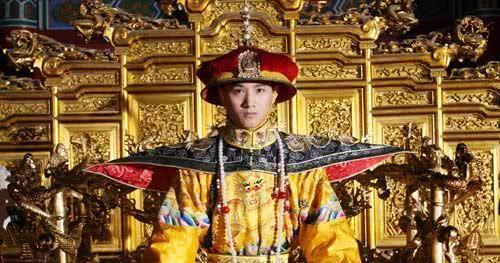In ancient times, the level of science and technology was not so developed, medical equipment was not advanced, the mortality rate of the population was greatly increased, and the life expectancy was generally low. In the primitive social period, the average life expectancy of human beings was only 15 years; during the feudal society period, the average life expectancy of human beings did not exceed 40 years; until the beginning of the 20th century, the life expectancy of human beings took a qualitative leap, from 40 years old to 61 years old.
As the highest-ranking ruler of feudal society, although the emperor had no worries about food and clothing, and enjoyed top-level medical services, there were few long-lived emperors in history. When it comes to the longevity emperor, the first thing that comes to mind is Qianlong, Qianlong reigned for sixty years, abdicated and became the emperor for three years, died without illness, and died at the age of 89, so the history books evaluate that he is the longest-lived emperor in Chinese history.

In fact, the longest-lived emperor in Chinese history was not Qianlong, but someone else, who successfully survived the death of his own son and grandson, until the generation of the great-grandson, someone stepped forward to take his throne, and this person and Qin Shi Huang did not have an ordinary relationship, who was he?
The emperor who survived the death of his children and grandchildren was none other than Zhao Tuo, the founding emperor of South Vietnam. Perhaps most people have never heard of this dynasty, it existed between the Qin Dynasty and the Han Dynasty, although the land area is small, but the economic development is no less than that of the Central Plains. Zhao Tuo was originally a general of the Qin Dynasty, and he and Ren Hu attacked Baiyue from the south, and during the great chaos at the end of Qin, Zhao Tuo divided Lingnan and established the State of South Vietnam. During the reign of Qin Shi Huang, he was very fond of Zhao Tuo, and Zhao Tuo was given the imperial sword to accompany Qin Shi Huang on a tour at the age of 19, which shows his position in qin shi huang's heart.
After Qin Shi Huang annexed the Six Kingdoms, his ambitions were not satisfied, and he still wanted to continue to pacify the Lingnan region, so he sent Zhao Tuo as a general, and finally completed the great cause of pacifying Lingnan in 214 BC. Although Lingnan was defeated, Qin Shi Huang and Qin II also died one after another, so the Lingnan region became the domain of Zhao Tuo. In 202 BC, Han Gaozu Liu Bang declared himself emperor, he did not dare to launch an attack on Lingnan, because Zhao Tuo had hundreds of thousands of soldiers and horses in his hands, and he could only outwit him if he could not attack strongly, and under the persuasion of Liu Bang's kind words, Zhao Tuo finally returned to the Han Dynasty and paid tribute to the Han Dynasty every year.
After Liu Bang's death, Lü Lu took over the power of the state, and because he saw that Zhao Tuo was not pleasing to the eye, he sent troops to attack the Lingnan region where Zhao Tuo was located, because Zhao Tuo's soldiers and horses were strong, and the soldiers and horses sent by Lü Lu could not attack at all. Zhao Tuo, in a fit of rage, went so far as to claim the title of emperor in the Lingnan region and establish the State of South Vietnam.
Historically, the kingdom of South Vietnam has gone through five kings and enjoyed ninety-three years of the country, and Zhao Tuo has been in power for more than 70 years, which shows his ability and courage. Zhao Tuo's biggest worry in life is the problem of heirs, his son died young, he had to put his hopes on his grandson, who knew that his grandson also died of illness, he actually survived two generations of death alone, fortunately there was another grandson, a stone in Zhao Tuo's heart before his death finally fell to the ground. In the fourth year of the reign of Emperor Wu of the Han Dynasty, Zhao Tuo, the King of Nanyue, died at the age of 103, making him the longest-lived emperor in Chinese history.